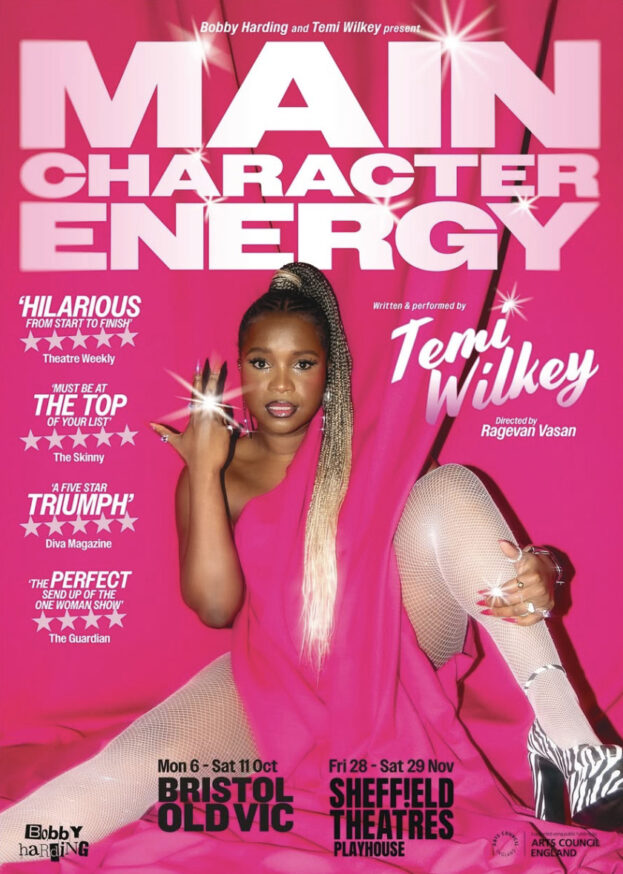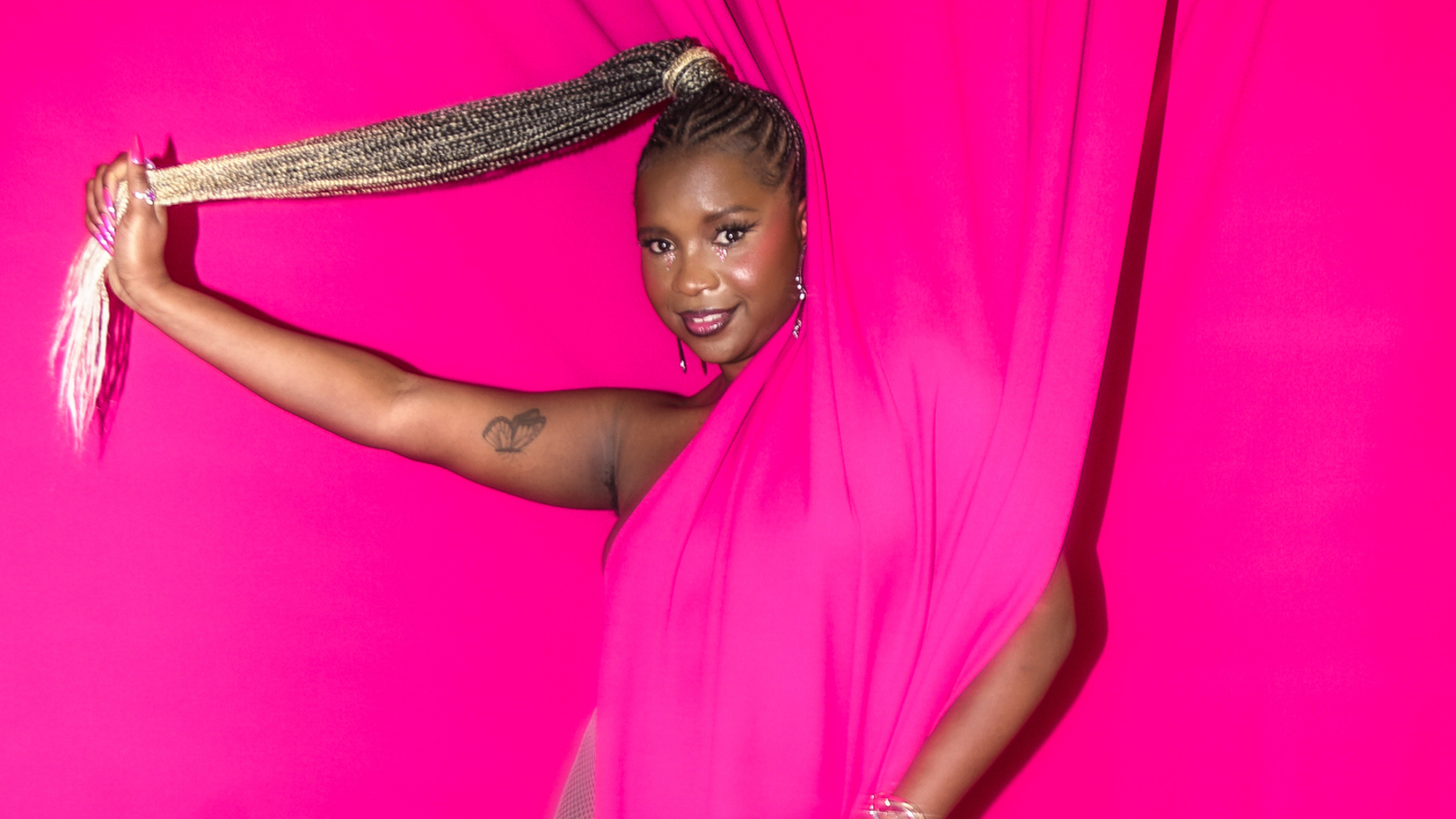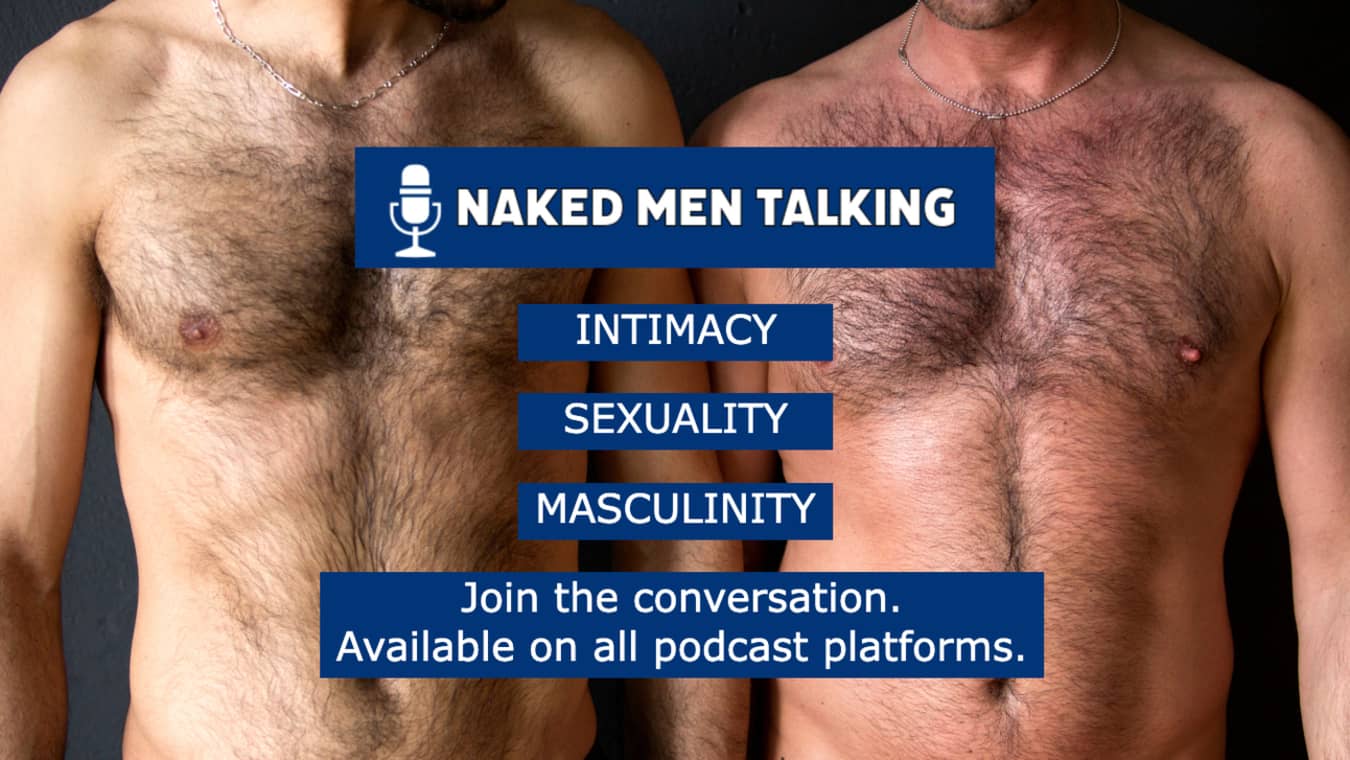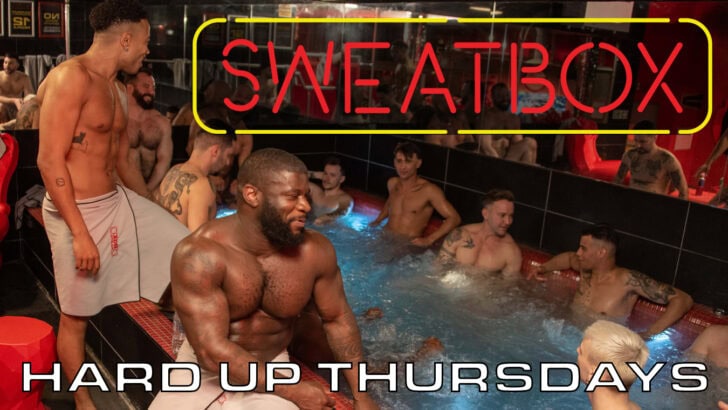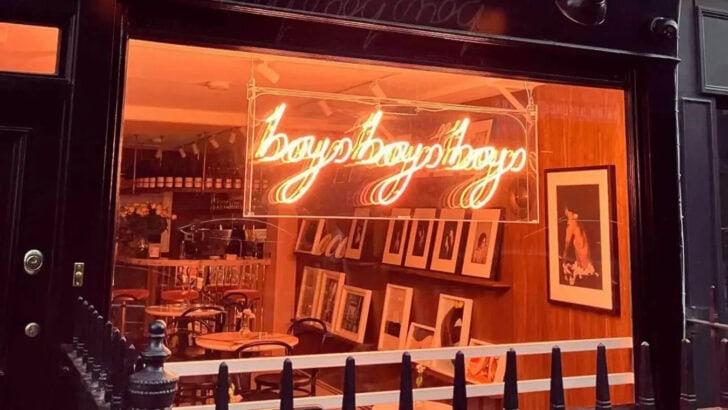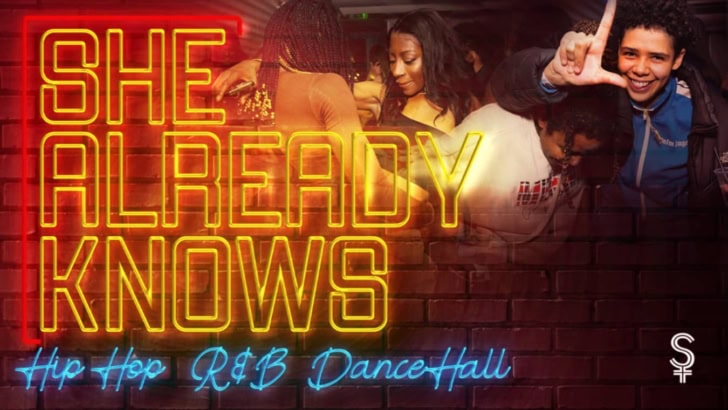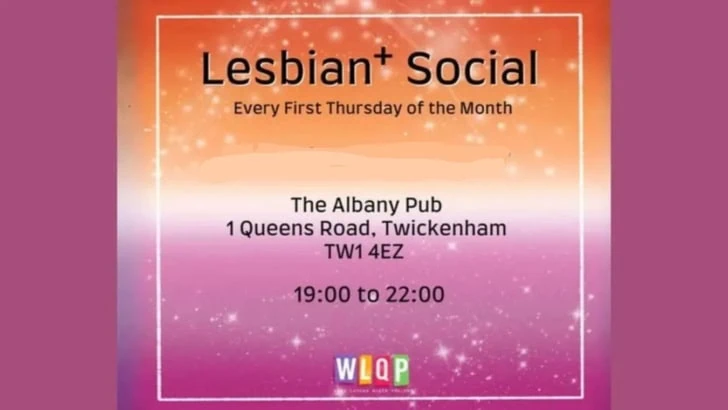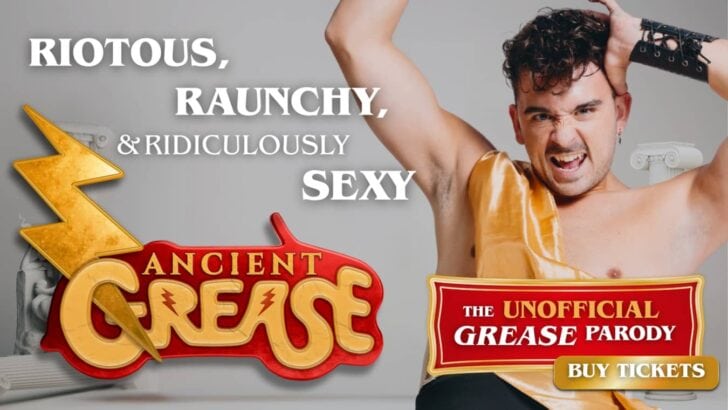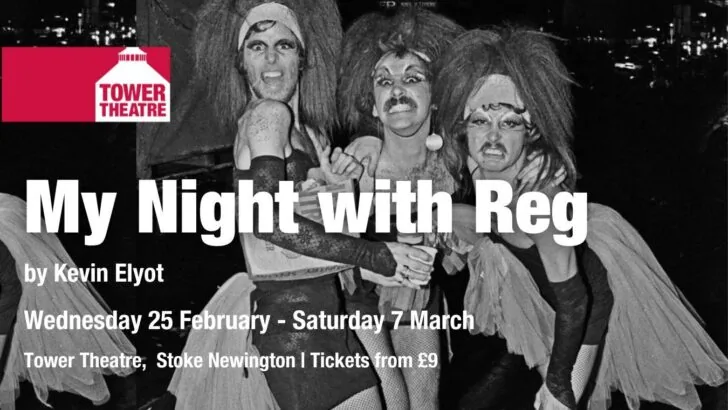Following its rise from cult debut at the 2024 Edinburgh Fringe Festival to a must-see, sold-out hit at London’s Soho Theatre, Main Character Energy now embarks on a major UK autumn tour. The tour opens at Bristol Old Vic (6–11 October), before playing The Nest at Chichester Festival Theatre (21–22 November), as part of its inaugural season, and Sheffield Theatres (28–29 November).
Temi Wilkey in conversation with Jack Parlett
Jack Patlett: Hi, Temi. So we’re gonna talk a bit about flamboyance today, something we both explore in our work. First off, I want to ask: how do you personally relate to flamboyance? And how does your work relate to it?
Temi Wilkey: They’re deeply related. I’m a very flamboyant person, and I think I’ve grown into it over the years. Being confident has come through a level of success with writing. My show, Main Character Energy, is really about taking up space with acting, comedy, or performing—stuff that I didn’t get the opportunity to explore until I gave it to myself. Being very self-indulgent in the work and utterly in celebration of who I am feels funny, but I also think lots of people find it quite inspiring. Seeing someone being very unapologetically flamboyant.
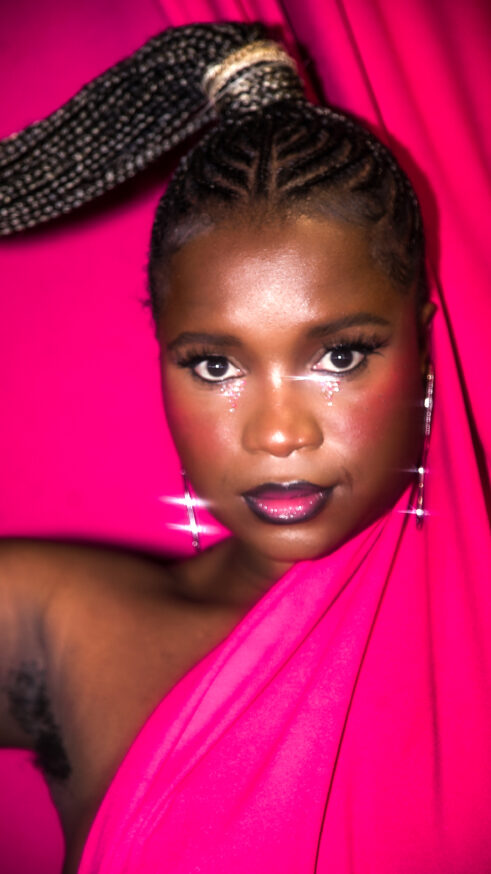
Jack: What does being unapologetically flamboyant look like for you?
Temi: At present, it’s a lot of pink and a lot of texture. It’s not being afraid to say I’m beautiful. Often, when I describe the show, I say that a beautiful Black actress decides to put on a one-woman show, and people often baulk at that. But, as a dark-skinned Black woman, it’s been an active battle to believe in my own beauty, and so I celebrate it every opportunity that I can.
Jack: Throughout its history, flamboyance has been about reclaiming or standing in truths that are uncomfortable, even confronting, in society. There’s a kind of radical honesty in it. It can be easy to read flamboyance as just performance or artifice, but often it’s more: No — this is me, and you’re going to f**king accept me.
Temi: That really makes me think of the ballroom scene. Our movement director on Main Character Energy is Bambi Laveaux, who’s a legendary mother in ballroom. Reclaiming your beauty and saying — Yes, I’m beautiful and you will look at me — feels so ballroom. I’ve been inspired by it, but I also think the world has been inspired by that confidence. The trans community has so much coming at them, historically and especially now; to defiantly celebrate your own beauty and celebrate who you are is so powerful.
Jack: We also get the concept of realness of ballroom, which is about performing or embodying roles or identities that might not traditionally be seen as yours. Sometimes it’s about survival — performing something more normative, in order to move through the world more safely — but it’s also about defining what your version of realness is. It’s not just imitation, it’s about asserting your right to be seen.
Temi: Realness may be an expression of what’s real within you. Or it can be something that you put on for a moment, but that doesn’t make it any less real. That makes me think about drag and the idea that gender is a performance. But actually, if you embody it truthfully, it’s real. When I was doing drag as a drag king, I was parodying masculinity, but sometimes I was truly embodying the masculinity within me. I think the line between what’s real and what’s a performance is a lot thinner than we think.
Jack: Flamboyance is intimately related to gender, whether it’s about embodying it or amplifying it, as in hyper-femininity, or subverting it entirely. I’m not personally very flamboyant in the way I present myself, which I think is what draws me to it as a subject. Growing up queer and closeted, flamboyance is often something we suppress — I certainly did — because it might give us away, or be met with hostility. It’s therefore an act of self-love to reclaim it, but it also takes work.
Temi: It’s very hard to be flamboyant under patriarchy. I think it’s often punishable if you’re a man. I’ve recently started dating straight men again, for my sins, which is really a journey. I’ve been noticing how much they suppress the femininity within them, a quality which we all possess. It’s sad because so much of that is creative expression, and the expression of joy. I think that is what flamboyance is to me: a creativity in the way that I express myself, not only in my gestures and my body and my movement in the ways that I’m funny, in the way that I dress. The technicolour of being alive. When you’re socialised under patriarchy as a man, you need to suppress those things in order to survive and fit in.
Jack: The word ‘flamboyant’, translated from the original French, means ‘flaming’, which reflects that shade of technicolour you describe. It’s whatever flames or illuminates, lights up a room. It’s a quality we expect of our stars and celebrities, but down on earth it can be also viewed as conceited or over-the-top. There’s a level of discomfort around people taking up space in this way. How does your work as a performer fit into this? Main Character Energy is a show about taking up space in a very real way, on a stage.
Temi: This makes me think of the relationship between self-indulgence and flamboyance. The dictionary definition of self-indulgence is about indulging in whatever you want to do, and I think flamboyance is a signifier of self-indulgence.Being flamboyant is being confident in your behaviour, a way of self-indulgently taking up space. There’s singing, dancing, clowning and stand-up in the show; the cabaret of it all feels self-indulgent, and I think cabaret is a very self-indulgent form.
Also, the way I languish on the stage, there’s a basking in the light, which is what I want to encourage in other people. You don’t necessarily have to put on a one woman show to do your own version of it. How can you indulge yourself and celebrate yourself and feel like you’re giving yourself the most love? There’s an image in the show about there being an audience of me’s watching, and I would love it if everybody in the audience left the show and wondered: Oh, if everyone walking down the street was me, what would I be doing or wearing or saying or being? I don’t think you can indulge yourself without knowing who you are, and loving who you are.
Jack: Flamboyance and self-indulgence can both carry a derogatory charge, depending on who is using these terms and how they use them. But from the way you’re describing it, acting flamboyantly or self-indulgently isn’t only or even primarily for an audience. It’s saying: I’m dressing or behaving or walking in this way for myself.
Temi: Yes, and I think sometimes people can feel uncomfortable with that, when you’re just loudly being you.Sometimes people can really react against it, and it’s true that if everybody is loudly themselves, that takes some negotiation. Making yourself small means that you trip over each other less, but at what cost?
Jack: These things can be messy, they require dialogue, and thinking of ourselves not only as individuals, but as part of a community, and how we can be ourselves in relation to others. There’s an almost unspoken social contract that we should people-please or making ourselves smaller. What parts of ourselves do we lose when we do this?
Temi: You can be abandoning yourself when you do that. Often now I’ll just state what I want. If someone responds and says, I don’t want to do that, then I’m like, okay, and then we can negotiate. But I think so often people are afraid to say what they want, or just go along with things that they don’t want to do. I love the Kim Cattrall quote: ‘I don’t want to be in a situation for even an hour where I’m not enjoying myself.’ It’s something to live by. I want to do I want to do.
I think this is what the next few shows in the trilogy are going to be about, the fact that you can’t just unapologetically be yourself. You also have to be willing to recognise and honour how someone is different from you, and negotiate around that. I don’t want to be around anyone that wants me to be smaller. But I also don’t want the bigness of me to mean that other people can’t be there for themselves. It’s an interesting dynamic, but I think it’s a better way to live.
Jack: Did you always conceive of Main Character Energy as a trilogy?
Temi: Not immediately. The name for the show came first, and it was while I was making the show that I realised it was a trilogy. There was just so much material. Exploring what it means to be a Black woman in this society means that there are so many facets to it. I also felt like it needed to be a trilogy because that is the most self-indulgent thing to do.I take the lead from Beyonce here, someone who knows they’re at the top of their game and can create a cohesive body of work that is really genre-busting, but also deeply personal and fulfilling. I felt so inspired by that and I felt like that is what this project demands.
To be self-indulgent in your craft is to do it so well that you can have fun with it. You and me went to see Raye together at the Royal Albert Hall a couple of years ago, and I was so inspired by seeing her relish in her own music, transformed into an orchestral score. At that scale you could see that she was at the top of her craft, so much so that she could just play. I find that so inspiring and I think that’s true self-indulgence. I’m taking up so much space by making three shows, because I’m gonna do them so well that I can enjoy them, and indulge myself in my own talents and craft and passion.
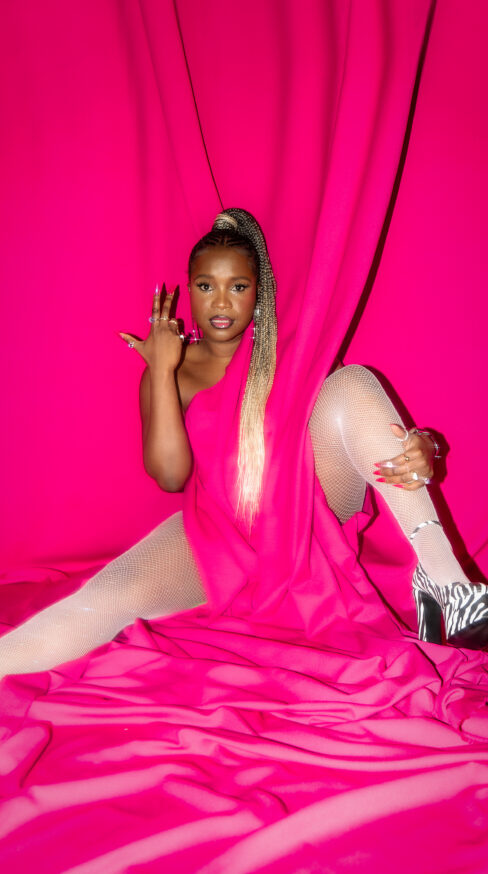
Jack: The Raye example is interesting too because what felt flamboyant to me about that performance was also her total vulnerability. Her music is so candid about her experiences and it was really moving to see her embrace that, to expose herself before an audience in that way. It’s a mistake to think that self-indulgence or flamboyance are at the opposite end of the spectrum to vulnerability. They’re related, I think. Do you see this as part of Main Character Energy as well? It’s a show in which you share so much of yourself.
Temi: There’s so much vulnerability in self-indulgence because it’s saying this is what I want and this is who I want to be. In some ways, you might be asking, do you accept me?, but I think where it ends is: I don’t care whether or not you do. I accept me. That is the important thing, the most important takeaway.
Jack: It’s also a rejection of the social values that refuse to accept difference. Look at the history of flamboyance, ofqueer culture, activism, protest movements, and there are so many examples of marginalised people faced with the choice of how to be. If you don’t fit into the white, hetero-patriarchal idea of normal, you are faced with the question of whether to fall in line or to resist. To hide away or live flamboyantly.
Temi: Yes, and too often we’re marginalised into being monochromatic, and it’s really important to resist that. It also makes me think about how colourful a lot of indigenous clothing is. The colour, the bombast. I’m West African, and there’s a line in the show about my mother’s ‘bombastic Yoruba fashions’. It’s also true of South Asian clothing. Oftenwhen we assimilate, we’re also made to erase that. It’s why I see resistance, walking down the streets in Peckham and seeing aunties in really colourful, expressive clothing. I imagine a sea of aunties in different colours, and that feels more like the kind of society I want to live in, where whatever colour you choose to be in that day is met against a sea of other bright colours. You’re all negotiating your luminosity against each other’s, rather than dimming your light. That’s the revolution I’m trying to start.
Temi Wilkey’s show Main Character Energy is currently on a UK tour:
- Bristol Old Vic (6–11 Oct)
- The Nest at Chichester Festival Theatre (21–22 Nov)
- Sheffield Theatres (28–29 Nov)
Jack Parlett’s book Flamboyance: The Art of Burning Brightly will be published by Granta in June 2026.
